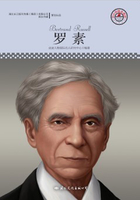THE RIGHT TEACHER
THIS BOY COULD BECOME A SECOND MOZART
THE SMALL TOWN OF BONN, ON THE WEST BANK of the Rhine, then as in more recent times, punched above its weight. Surprisingly chosen as the capital of the Federal Republic of Germany in 1949, it was, in Beethoven's lifetime, the unlikely seat of the Elector, who was also Archbishop of Cologne and Münster. It was a medieval Archbishop who selected Bonn for his residence, rather than the more obvious choice of Cologne, possibly for the reason that the mighty Rhine narrowed at this point and could be blocked, thus bestowing on Bonn a crucial strategic importance. In later centuries it endowed Bonn with a certain grandeur, more than a veneer of aristocracy, a degree of wealth and prosperity, which its rival towns on the Rhine-Cologne, Mainz, Coblenz-could only look at with envy. And for the people of Bonn-fewer than 10,000 according to a survey in 1789-it meant pleasant, well-tended surroundings and, more importantly, security and income. For a town with no manufacture or commerce, it was commonly stated that 'all Bonn was fed from the Elector's kitchen'.
Clemens August, who made his solemn entry into Bonn as Elector in 1724, endowed the town with a fine palace (now the University of Bonn) and an ornate Town Hall (today used for ceremonial functions-President Kennedy made a speech there in 1963). But, of more importance to our story, in 1733 he employed a Flemish immigrant by the name of Ludwig van Beethoven as court musician, and twenty-three years later his son Johann.
This Elector left his mark on Bonn in another way too. He danced himself to death, literally. Leaving Bonn to visit his family in Munich in early 1761, he was struck down with illness, and broke his journey to call on the hospitality of his fellow Elector in Ehrenbreitstein. [1] At dinner he was too ill to eat, but not it seems too poorly to take to the dance floor afterwards with the alluring Baroness von Waldendorf, sister of the Elector. She must have been exceedingly alluring, because he danced with her not once, or twice, but for 'eight or nine turns'. Other ladies, complaining of neglect, received their turn too. If his spirit was willing, his flesh could not withstand the exertion. He passed out on the dance floor, was carried to his room, and died the next day.
I recount this story, not just to raise a sympathetic smile, but because of the impact it, and subsequent events, had on the Beethoven family. Clemens August's successor as Elector, Maximilian Friedrich, had barely got his feet under the desk, as it were, when he received a petition from court bass singer Ludwig van Beethoven seeking elevation to the supreme musical position of Kapellmeister, the post being vacant following the death of the previous incumbent. The petition pleads with the Elector 'to grant me the justice of which I was deprived on the death of Your Highness's antecessori of blessed memory', which suggests the elder Beethoven had made moves-if not in a formal petition-to be appointed Kapellmeister before the previous Elector's untimely demise.
We can assume the death of Clemens August, and the manner of his passing, was the predominant topic of conversation at all levels among the populace of Bonn, with varying degrees of ribald observation. Certainly, at court level, it led to immediate jockeying for promotion, in particular among the court musicians, since the top job itself was vacant.
Beethoven senior's bold approach paid dividends. By an order of the Elector dated 16 July 1761, he was appointed Kapellmeister, with an increase in salary, though less than he might have expected due to the fact that he was not a composer. A little over two years later he managed to secure a permanent position at court for his son Johann, as tenor and violinist. Between them, father and son (not yet married) were earning a comfortable sum.
This was particularly fortunate, for under Maximilian Friedrich things changed for the burghers of Bonn. The Elector himself was an affable and kindly man, sharing with his predecessor a predilection for the fairer sex, and court entertainment carried on much as before. But his popularity with his people was in stark contrast to that of his First Minister. Count Kaspar Anton von Belderbusch had been instrumental in securing Maximilian Friedrich's election. In return he demanded-and was granted-unrivalled political power. On examining the exchequer and discovering the previous Elector's extravagance, he came down hard on all expenditure.
Practically overnight the good life in Bonn ended. People suddenly found themselves out of work, some even losing what had previously been considered a 'job for life' at the court. At all levels there was a financial crackdown. A visitor from England was somewhat horrified to find that at dinner with the Elector, 'no dessert wines were handed about, nor any foreign wines at all', which, while it might say as much about the travel writer Henry Swinburne as it does about the Elector, at least suggests a comfortable life was expected at court, if nowhere else.
The easygoing and even-tempered Elector was not one to stand up to his First Minister, which might have something to do with the fact that Belderbusch knew rather a lot about the Elector's private life. The two men shared a mistress, a certain Countess Caroline von Satzenhofen-who happened to be Abbess of a Benedictine nunnery close to Bonn!
Once again, this is likely to have been common knowledge, at least among court employees. It is inconceivable that there were not hushed whispers when the two men were seen together, and the fact that the Elector was as much liked as his First Minister was disliked might have had something to do with resentment at the fact that Belderbusch not only behaved as if he was Elector, but even enjoyed the services of the Elector's mistress.
This, then, was the Bonn that Ludwig van Beethoven was born into, a town that had seen more comfortable days, that was nominally ruled by an ineffective Elector and governed by a strict disciplinarian First Minister, but that still boasted an enviable artistic life, with a busy calendar of performances by court orchestra and theatre, and was a desirable location for touring theatrical companies. It was this reputation for the arts, particularly music, that brought the thirty-one-year-old composer, organist, and conductor, Christian Gottlob Neefe, to Bonn.
A combination of circumstances made Neefe the ideal teacher for the budding young musician, Ludwig van Beethoven. As a young man in Chemnitz in Saxony he had had serious disagreements with his father, who wanted him to follow his example and take up law. Under protest he enrolled at the University of Leipzig to study jurisprudence, but was so unhappy he apparently contemplated suicide. Against his father's wishes he gave up the law and turned to music. At the same time he immersed himself in the philosophy and ideals of the German Enlightenment, reading Gellert, Klopstock, and particularly the young Goethe.
Imagine the effect of this background on a ten-year-old boy. Ludwig's beloved grandfather was long dead, and he was watching his father descend into alcoholism and his parents' marriage come under increasing strain. Here was an adult who might well have poured out his troubles with his own father to young Ludwig, at the same time encouraging him to develop as a musician in the way he wanted, without reference to his father. He will also without doubt have filled the boy's head with radical, even revolutionary, ideas. This was the decade in which the Enlightenment was sweeping Europe, questioning the divine order of things, the God-given right of rulers to rule-ideals and philosophies that were to come to such a terrifying climax in France in just a few years' time.
Judging by an autobiographical tract he wrote in Bonn in 1782, at about the time (or shortly after) Ludwig became his pupil, Neefe believed strongly that sensual desire should be sublimated into art and the quest for ethical perfection. A more apt description of the adult Beethoven's ethics would be hard to find.
Of crucial importance, I believe, is the rarely stated fact that Neefe was a Protestant, and he had come to live in a Catholic town. True, Bonn was hardly a hive of subversive activity, but the fact that Neefe was a Protestant would certainly have been noted. He joined the local Order of Illuminati, nominally a nonsectarian organisation with branches throughout Europe, which attracted artists and literary figures such as Goethe. Members took a vow of secrecy and obedience to their superiors, and Neefe soon became one of its leaders. The movement began in Bavaria, and when it was suppressed there, the Bonn branch dissolved itself in favour of a less suspect body, called the Reading Society (Lesegesellschaft).
Neefe became a leading light in the Reading Society, and since his pupil was in his early teens at the time, it is not inconceivable he took him along to meetings. At any rate, it is hard to imagine a more intimate, even secretive, situation than a teacher and pupil alone in a room at the piano, and the young Ludwig would easily have come to admire the forward-thinking, radically minded, intensely musical Neefe. If evidence were needed, less than a decade later Ludwig wrote to Neefe from Vienna, rather formally, 'I thank you for the advice you have very often given me about making progress in my divine art. Should I ever become a great man, you too will have a share in my success.' I believe that the seeds of Beethoven's radicalism, both in music and in his personal and political beliefs, were sown in these early, impressionable years as Neefe's pupil.
On the death of old van den Eeden, court organist and Ludwig's first teacher, Neefe was appointed to succeed him. This was remarkable for someone who had not long since arrived in Bonn, and whose duties would require him to play at church services. It says something for the degree of religious tolerance in Bonn that Neefe's Protestant faith did not stand in his way.
The appointment gave Neefe status. Although one might suspect that his new court duties would leave him little time for instruction, Neefe was perceptive enough to recognise that his young pupil had extraordinary talents that needed nurturing. When he expressed this view, he was listened to, given his elevated position as court organist. This led to a significant development in the life of young Ludwig.
Shortly after getting the job of court organist, Neefe was committed to a lengthy absence from Bonn with the Grossmann and Helmuth company. He proposed that his young pupil should stand in for him, and play the organ at church services. Ludwig was just eleven years of age. The proposal was accepted, even if with raised eyebrows, and one can be sure that any doubts or misgivings were laid to rest when Ludwig's skill on the organ was heard.
Thanks to Neefe, Ludwig's talents were now beginning to be widely appreciated. Neefe did not stop there. It was fortunate for Ludwig that Neefe was a composer. It meant that when he expressed a desire to compose, very soon after beginning lessons, Neefe did not discourage him. A lesser teacher might well have advised him to learn to walk before he could run but, perhaps recognising something of his own early enthusiasm in the boy, he encouraged Ludwig.
It is probable Ludwig had begun making musical sketches even before beginning instruction with Neefe. Whether or not this was the case, or whether Neefe gave him direct advice on what to try his hand at, in 1782 Ludwig produced a composition for piano. It was a set of variations on a march by the recently deceased German composer Ernst Christoph Dressler. Ludwig probably wrote it during Neefe's absence. Again, a lesser teacher might have torn it to shreds, or at least criticised it heavily, even if constructively. What Neefe did, instead, was arrange to have it published.
Within a year or two of taking Ludwig on as a pupil, then, Neefe had given him the opportunity to play the organ at civic services and had arranged for the publication of his first work. Ludwig was not yet twelve years of age. Had Neefe then vanished from the scene, these services alone would have been enough to earn him his place in musical history. But there was more, much more, to come.
The marriage of Johann and Maria Magdalena was drifting perilously close to the rocks. Johann, loving his drink more and more, thought nothing of walking through Bonn gulping wine from a flask, unmindful of being seen. Gottfried Fischer gives graphic accounts of the strains in the marriage of the couple living in the apartment above him, and-again with the caveats that he was a child when witnessing what he describes and that he wrote down his memoirs around sixty years later-they have more than a ring of truth to them.
Maria Magadalena, berating her husband for drinking outside in the street, draws this response: 'It is such hot weather that I have to have a drink.'
She replies, 'That's true, but you have to have a drink even without the summer heat.'
He responds, 'You are right. I agree with you. Thank you. Tell me when it's time to eat and I'll come straight in.'
Gottfried recounts how Johann van Beethoven tried to plant a kiss on his sister C?cilie, calling her 'our patroness of music'. She replied, 'I am not the sort of girl to go round kissing people, anyway you already have a wife, go and kiss her, not me.'
'You are a clever little witch,' said Johann. 'You know exactly what to say.'
According to Gottfried, Johann chanced his luck with C?cilie again, some years later. He made a drunken lunge at her, she deflected him with a hearty push, he knocked over the oven, pulling the stove and stovepipe from the wall. According to Gottfried's memoirs, everyone (rather surprisingly) took it in good fun, including Johann, who said, 'That taught me a good lesson', and Maria Magdalena, who appears to have been in the room at the time, told C?cilie, 'That was the right thing to do. That's how to handle him.'
The dialogue may be stilted, the reminiscences coloured with the passage of time. But at the very least what we have here is a musician employed at court descending into alcoholism, prone to making a fool of himself in private and public, uncaring of what this might be doing to his career and reputation.
From further anecdotal evidence it is clear that Maria Magdalena had long since given up on her husband. When he received his monthly salary, or payment from pupils, he would toss the bag of money into his wife's lap and say, 'There woman, manage with that.' This is stark evidence that Maria Magdalena was in charge of the family's finances, and her husband was acquiescent. According to Gottfried, after Maria Magdalena had the money safely in her hands, she would tease her husband about his drinking, saying, 'A man cannot be allowed to return home with empty hands.'
'Yes, empty hands!' One can imagine Johann staring dolefully at his empty hands.
'Yes, so empty,' says Maria, 'but I know how much you would like to fill them up with a full glass.'
'Yes, yes,' as a smug grin spreads across his face, 'the woman is right, she is always right.'
Once again, if the dialogue is contrived and exaggerated, it suggests that in the early stages of their marriage at least, before Johann's drinking had a fatal effect on his career, Maria Magdalena would be content to indulge her husband's habit as long as the money kept coming in.
But this was not to last. There is anecdotal evidence from several sources as to just how unhappy Maria Magdalena was. Gottfried quotes her saying to C?cilie, 'If you want my advice, stay single, that's the secret to having a quiet, happy life. For what is marriage? A little joy, but then a chain of sorrows.' C?cilie in her turn is quoted as saying that she had never seen Maria Magdalena laugh, that she was always serious. Another neighbour describes her as a 'quiet, suffering woman'. She was apparently not above losing her temper, and on occasion was able to give as good as she got.
An unhappy marriage, then, although certainly in the early years not one beyond repair. But as Johann's drinking took hold, it was to lead to a disastrous sequence of events that was to throw a heavy shadow over the Beethoven household.
This is the atmosphere in which young Ludwig van Beethoven grew up. According to Gottfried Fischer, Ludwig witnessed the conversation in which his mother described marriage as 'a chain of sorrows'. He will certainly have witnessed disagreements, even rows, between his parents, and will have become aware painfully early of his father's excessive drinking.
By the time he began lessons with Neefe, he was the eldest of three sons, there was an infant in the house who died at two years of age, and a daughter born five years later who died at the age of one. [2] This can only have contributed to the tensions in the marriage, and the difficult atmosphere in the apartment on the second floor of the house in the Rheingasse, which Gottfried Fischer so vividly describes.
But Ludwig had something that neither his brothers, nor anyone he knew, had. A means of escape. It must have been not just with a feeling of relief, but an overwhelming sense of excitement, that he set off each time for instruction with Neefe. An opportunity to enter the world of music, his world, where the conversation would be on a different plane from the mundanities of his home life and where, if they were discussed, they were no doubt dismissed with a wave of the hand as being too trivial to impinge on the higher calling of true art. Total escape, though, was not possible. At its most basic, Ludwig had to return to the apartment, to his mother's sadness and despair, his father's drunken antics, two younger brothers no doubt running riot, and a baby restless with ill-health.
Ludwig would not have been able to evade the knowledge that if his father's career were to implode, the full weight of caring for the family would fall on his shoulders, as the eldest son. This was customary in that era. Normally the eldest son would be apprenticed to the father's trade-as Gottfried Fischer was to his baker father-but this was not possible in Ludwig's case. He was training to be a musician, and he had not yet entered his teenage years. How on earth would he be able to earn a living as a musician at such a young age?
Once again, history-as well as a small, apprehensive boy-owes a debt of gratitude to Christian Gottlob Neefe.
In a remarkable leap of faith, Neefe wrote a piece for the Magazin der Musik, a musical publication owned by the German book dealer and writer on music, Carl Friedrich Cramer, in which he described the musical scene at the Elector's court in Bonn. It was published in the issue dated 2 March 1783, and is so prescient about his young pupil that the paragraph concerning him deserves to be quoted in full:
Louis van Betthoven [sic], son of the above-mentioned tenor, a boy of eleven [sic] years and of most promising talent. He plays the clavier very skilfully and with power, sight-reads very well, and-to put it in a nutshell-he plays chiefly The Well-Tempered Clavier of Sebastian Bach, which Herr Neefe put into his hands. Whoever knows this collection of preludes and fugues in all the keys-which might almost be called the non plus ultra of our art-will know what this means. So far as his other duties have permitted, Herr Neefe has also given him instruction in thorough-bass. [3] He is now training him in composition, and in order to encourage him has had 9 variations on a March by Ernst Christoph Dressler published in Mannheim. This young genius deserves support so that he can travel. He would surely become a second Wolfgang Amadeus Mozart, if he were to continue as he has begun.
This is an extraordinary endorsement. Here is a professional musician going public in print with the belief that his young pupil is a musician of genius, not just of genius but potentially the equal of Mozart. In more practical terms it gives us a wonderful insight into exactly what Ludwig was capable of. At the age of twelve, he was proficient in arguably J. S. Bach's greatest set of compositions for the keyboard, exploring all twenty-four keys, recognised at the time as some of the most difficult keyboard music ever written. There is many a professional who fails to master 'The 48' [4] in a lifetime. Neefe also-and this is startling evidence of his farsightedness-gives equal weight to the instruction he is giving Ludwig in composition.
The final two sentences stand alone as the first endorsement of Ludwig's skills to appear in print. Neefe's use of the word 'genius' and the name 'Mozart' could have made him a hostage to fortune, staking his reputation in print. [5] He clearly saw this as no risk, and history has most certainly vindicated him. Finally, I find it touchingly humble that Neefe is writing in the third person, almost as if to concentrate the reader's mind on Ludwig van Beethoven rather than himself.
Hardly had the piece been published before Neefe set about encouraging Ludwig in his next great enterprise-more composition. One begins to form the impression that Neefe believed there was nothing more he could teach the boy in terms of performance, that in fact Ludwig might already have been a better keyboard player than he himself was. What better course of action, then, than to encourage him in his desire to compose?
This might well have been linked to the two final sentences in that paragraph published in Cramer's magazine. In one sense they can be read as a generalised suggestion that Ludwig needed to broaden his horizons, so that he could become as good as Mozart. In another, more subtle reading, they are in effect a plea to the Elector, or failing him any moneyed aristocrat, to come up with the money that would enable Ludwig to travel to Vienna and study with Mozart.
This second reading is reinforced by the composition that Ludwig now produced. It was nothing less than a set of three full piano sonatas. If the Dressler Variations were impressive-the rapid runs in the final variation are intimidating even for a proficient player-the three piano sonatas are on a higher plane altogether. For a start it was extraordinarily bold and ambitious for a twelve-year-old to choose the sonata form, rather than something simpler such as a rondo, or minuet, or more variations. Secondly there are elements in all three compositions that point ahead to his more mature work. It has been convincingly argued that these three piano sonatas, although without opus numbers, should be included in Beethoven's total piano sonata output, so that we should talk of his thirty-five piano sonatas, rather than the more normal thirty-two. There might be several hundred recordings of the Beethoven piano sonatas by virtuosos over the last seventy or eighty years, but relatively few that include the first three. [6]
If Ludwig's choice of the sonata form was bold, the person to whom he chose to dedicate these first three sonatas showed a confidence bordering on arrogance. It was none other than the Elector himself, Maximilian Friedrich. And what a contrast to the dedication of the Dressler Variations. Those were dedicated to a noblewoman 'par un jeune amateur'. The sonatas were a gift for a scion of the House of Habsburg, the most senior aristocrat in Bonn, and the letter accompanying the manuscript shows not a shred of self-doubt:
Having become acquainted so early with the gracious Muse who tuned my soul to pure harmonies, I learned to love her, and she, as it often seems to me, began to love me too… Since then my Muse in hours of sacred inspiration has often whispered to me: 'Make the attempt, just put down on paper the harmonies of your soul!'… I was almost too shy. But my Muse insisted-I obeyed and I composed.
And now may I dare, Most Excellent Lord!, to lay the first fruits of my youthful work on the steps of your throne?… Filled with this heartening confidence I venture to approach you with these youthful essays. Accept them as a pure sacrifice of childlike reverence and look upon them, Most Illustrious Lord!, and their young composer with favour.
Even given the touching hint of shyness, these are hardly the words you would expect from a twelve-year-old, and there can be no doubt that Neefe played a significant role not just in the composition of the sonatas, but in the choice of dedicatee and wording of the accompanying letter. And why should Neefe encourage young Ludwig to make such a bold move? To convince the most powerful man in Bonn that this youthful genius deserves the kind of help that will enable him to travel, of course.
The ploy might well have succeeded, had Maximilian Friedrich not died less than six months later. Evidence of this is the fact that in February 1784, two months before the Elector's death, Ludwig was appointed assistant organist to Neefe. His star was in the ascendant, but fate intervened.
First, in that month of February, the Rhine burst its banks. The situation was serious, with the quarter adjoining the river inundated. The Fischer house was on the Rheingasse, so named because it ran at right-angles down to the river, and the house was on the lower portion of the street. The waters quickly engulfed the lower floors, and Gottfried Fischer wrote in his memoir that Frau van Beethoven played a leading role in calming the panic and helping residents to safety, until she had to make her own escape over boards and down ladders. This is particularly heroic, given that she had three boys, aged thirteen, ten, and eight, to look after. Significantly, there is no mention of their father in this episode.
It was as the waters receded and the town was struggling to get back on its feet that the Elector died, replacing one form of disarray with another. The succession was immediate, since it was the custom for all Electors to have a co-adjutor, an appointed successor. In this case, the new Elector of Bonn and Archbishop of Cologne and Münster, was one Maximilian Franz.
As Ludwig had been fortunate in his teacher Neefe, he was just as fortunate in the chosen successor as Elector. The same cannot be said for his father. In fact the months following Maximilian Franz's accession were the most difficult the Beethoven family had had to face to date.
Max Franz, as he was familiarly known, was to play a crucial role in the development of young Ludwig van Beethoven as a composer, though it did not seem that way to start with. Endowed with an acute mind and a love of the arts, he did nothing to endear himself to his people. In fact his deportment and looks made him the butt of sarcastic humour. He was described as kindly, lazy, fond of a joke, honest, amiable, and affable. He had a debilitating limp, caused when he fell from his horse on campaign in Bavaria. That put paid to his short-lived military career, and so he followed the only other career path open to a member of the ruling Habsburgs: the church.
Installed in Bonn, sedentary and inactive, he quickly put on weight, and more and more weight, and was soon chronically obese, which did nothing to improve his reputation. But he had one attribute that stilled all seditious tongues. He was the youngest son of Empress Maria Theresa, and brother of the Holy Roman Emperor Joseph II. He was also brother of Marie Antoinette (Maria Antonia), wife of Louis XVI and Queen of France. In other words, he was a senior member of the most powerful ruling family in Continental Europe.
He used that power the moment he became Elector. He shut down the theatre company, depriving Neefe of a portion of his income, and ordered full and detailed reports into every aspect of government, including musical appointments and activities. The result of this investigation was to have profound implications for the Beethoven family.
Each and every court musician was investigated, and individual reports submitted. Of the three musicians directly relevant to our story, it was a disaster for Johann van Beethoven, a potential disaster for Neefe, and rather good news for young Ludwig. The reports have survived, and make compelling reading.
J. van Beethoven, age 44, born in Bonn, married, his wife is 32 years old, has three sons living in the electorate aged 13, 10 and 8 years, who are studying music. Has served 28 years, salary 315 fl.
Johann Beethoven has a very stale voice, has been long in the service, is very poor, of fair deportment and married.
Christ. Gottlob Neefe, aged 36, born at Chemnitz, married, his wife is 32, born at Gotha, has two daughters in the electorate aged 5 and 2, has served three years, was formerly Kapellmeister with Seiler, salary 400 fl.
Christian Neefe, organist, in my humble opinion might well be dismissed, inasmuch as he is not particularly versed on the organ. Moreover he is a foreigner, having nothing in his favour, and is of the Calvinist religion.
Ludwig van Beethoven, aged 13, born at Bonn, has served two years, no salary.
Ludwig van Betthoven [sic], a son of the Betthoven sub No. 8, has no salary, but during the absence of the Kapellmeister Luchesy [Lucchesi] he played the organ, is of good capability, still young, of good and quiet deportment, and is poor.
Johann van Beethoven's 'very stale voice' was tantamount to a death sentence on his career, though it was to be a few years before the axe fell. Neefe's Protestant religion is now counting against him. Young Ludwig, it seems, has a bright future. And also a problem. If Neefe is sacked, he is the obvious successor as court organist. One can imagine the boy was torn between his natural ambition and loyalty to his teacher.
The situation was resolved by a decision to keep Neefe on, but he found his salary slashed, with a good proportion of it going to his assistant. It is the first time Ludwig van Beethoven was paid for his services as a musician. He was thirteen years of age, and it was to be the first, and almost last, salaried position of his entire life. Maybe that was the stimulus for his next grand compositional project, nothing modest: a piano concerto. But, probably realising he was not ready, he abandoned it. [7]
Young Ludwig, now a teenager, was acquiring a confidence that saw him start to behave in ways that drew admiration and exasperation in equal measure. In Holy Week it was customary for a court singer to sing portions of the Lamentations of Jeremiah to Gregorian chant, accompanied on the piano. In 1785 the singer was the highly respected Ferdinand Heller, and the pianist Ludwig van Beethoven. A mischievous streak, hitherto largely hidden, emerged in Ludwig, who was piqued at Heller's self-confidence and tuneless singing.
On day two, he asked Heller for permission to try and throw him off the note by varying the piano accompaniment. Heller apparently readily agreed, stressing his experience against his accompanist's lack of it. In the service, Ludwig's fingers flew off in all directions, save for one finger which repeatedly struck the note that Heller should sing. Heller held his ground, but soon found the dazzling accompaniment too distracting. Towards the end of the passage, he lost the note completely.
Lacking a sense of humour, as well as the superior talent he believed he had, Heller entered a formal complaint against Ludwig with the Elector. Max Franz admonished Ludwig, but with a smile on his face, saying in future he had better stick to simple accompaniment. Kapellmeister Lucchesi, on the other hand, was a good enough musician to see that Ludwig's skill on the keyboard was a rather more important attribute than Heller's singing.
This anecdote was recorded by a young man who was to have the most profound influence on the life of Ludwig van Beethoven.














